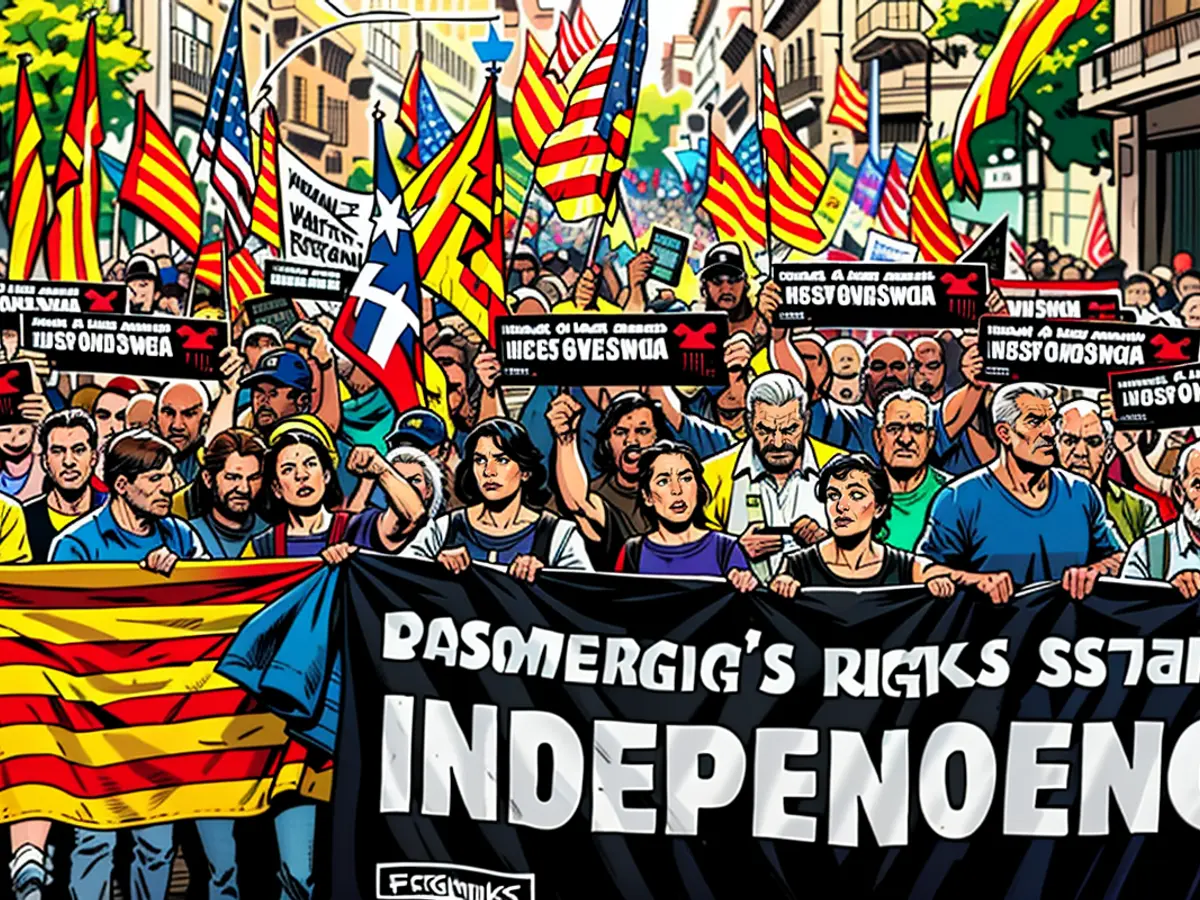Catalonian Separatism - Amnesty Law coming before Constitutional Court in Spain
The controversial amnesty for Catalan separatists is going before the Spanish Constitutional Court. This was decided by the Supreme Court in Madrid. We are convinced that the law, which came into effect approximately one and a half months ago, is unconstitutional, as it violates, among other things, the principle of equality before the law and the principles of legal security and prohibition of arbitrariness, stated the five judges of the second chamber of the Supreme Court in their communication.
The amnesty and other concessions were promised by Minister President Pedro Sánchez to the "Catalanists" to secure their votes for his re-election in November. The passing of the "Law for the institutional, political and social normalization in Catalonia" in the parliament at the end of May was preceded by heated debates and several votes.
Separatists return home
Several separatists, who had fled abroad to avoid Spanish justice, were able to return home after the law came into effect without being arrested. In some cases, the arrest warrants have not been revoked by the competent judges yet.
This applies, for example, to the former regional government head Carles Puigdemont. The 61-year-old, who has lived in exile in Belgium since the illegal independence referendum in the fall of 2017, assured that he would still return. He intends to participate in the debates over the formation of the new government in the Barcelona parliament and to run for the position of Regional President.
The Socialists led by Sánchez and the Spitzenkandidate Salvador Illa won the most seats in the election, but they failed to achieve an absolute majority. However, the various parties advocating for independence together missed a government-majority for the first time since 1980. Sánchez considered this an achievement of his appeasement policy. However, if there is no new government by August 26, a new election must be called in the northeastern region of Spain.
- The Spanish Constitutional Court is set to review the constitutionality of the amnesty law for Catalan separatists, a decision made by the Supreme Court in Madrid.
- The controversial amnesty law and other concessions were promised by Spanish Prime Minister Pedro Sanchez to secure the votes of the "Catalanists."
- The passage of the "Law for the institutional, political, and social normalization in Catalonia" was met with heated debates and several votes in the Spanish parliament.
- Several separatists who had fled abroad to avoid Spanish justice were able to return home after the law came into effect, although some arrest warrants have not been revoked by the competent judges yet.
- Carles Puigdemont, the former regional government head of Catalonia, who has lived in exile in Belgium since the illegal independence referendum, has expressed his intent to return home and participate in government debates.
- If a new government is not formed in Catalonia by August 26, a new election must be called, marking the first time since 1980 that various parties advocating for independence have missed a government-majority in the northeastern region of Spain.








